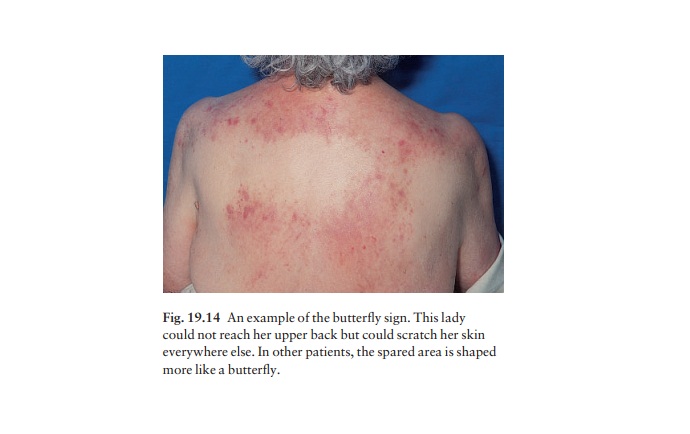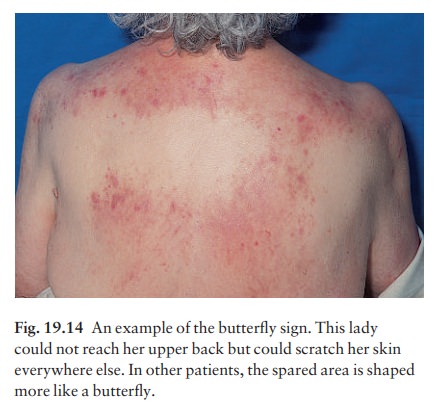Chapter: Clinical Dermatology: The skin in systemic disease
Generalized pruritus

Generalized
pruritus
Pruritus
is a symptom with many causes, but not a disease in its own right. Itchy
patients fall into two groups: those whose pruritus is caused simply by
sur-face causes (e.g. eczema, lichen planus and scabies), which seldom need
much investigation; and the others, who may or may not have an internal cause
for their itching, such as the following.
1 Liver disease.
Itching signals biliary obstruction.It is an early symptom of primary biliary
cirrhosis. Cholestyramine often helps cholestatic pruritus, pos-sibly by
promoting the elimination of bile salts.
2.
Chronic renal failure. Urea itself seems not to
beresponsible for this symptom, which plagues about one-third of patients
undergoing renal dialysis
3 Iron
deficiency. Treatment with iron may help theitching.
4 Polycythaemia.
The itching here is usually triggeredby a hot bath; it has a curious pricking
quality and lasts about an hour.
5 Thyroid disease.
Itching and urticaria may occur inhyperthyroidism. The dry skin of
hypothyroidism may also be itchy.
6 Diabetes.
Generalized itching may be a rare pre-sentation of diabetes.
7 Internal malignancy.
The prevalence of itching inHodgkin’s disease may be as high as 30%. It may be
unbearable, yet the skin often looks normal. Pruritus may occur long before
other manifestations of the disease. Itching is uncommon in carcinomatosis.
8 Neurological disease.
Paroxysmal pruritus has beenrecorded in multiple sclerosis and in
neurofibromat-osis. Brain tumours infiltrating the floor of the fourth
ventricle may cause a fierce persistent itching of the nostrils.
The skin of the elderly may itch because it is too dry.The search for a cause has to be tailored to the indi-vidual patient, and must start with a thorough history and physical examination. The presence of a ‘butterfly sign’ (Fig. 19.14) sometimes suggests an internal cause for the itching. Unless a treatable cause is found, therapy is symptomatic and consists of sedative anti-histamines, and the avoidance of rough clothing, over-heating and vasodilatation, including that brought on by alcohol. UVB may help the itching associated with chronic renal, and perhaps liver disease. Local applications include calamine and mixtures contain-ing small amounts of menthol or phenol. Sometimes lubricating the skin with emol-lients helps.

Related Topics